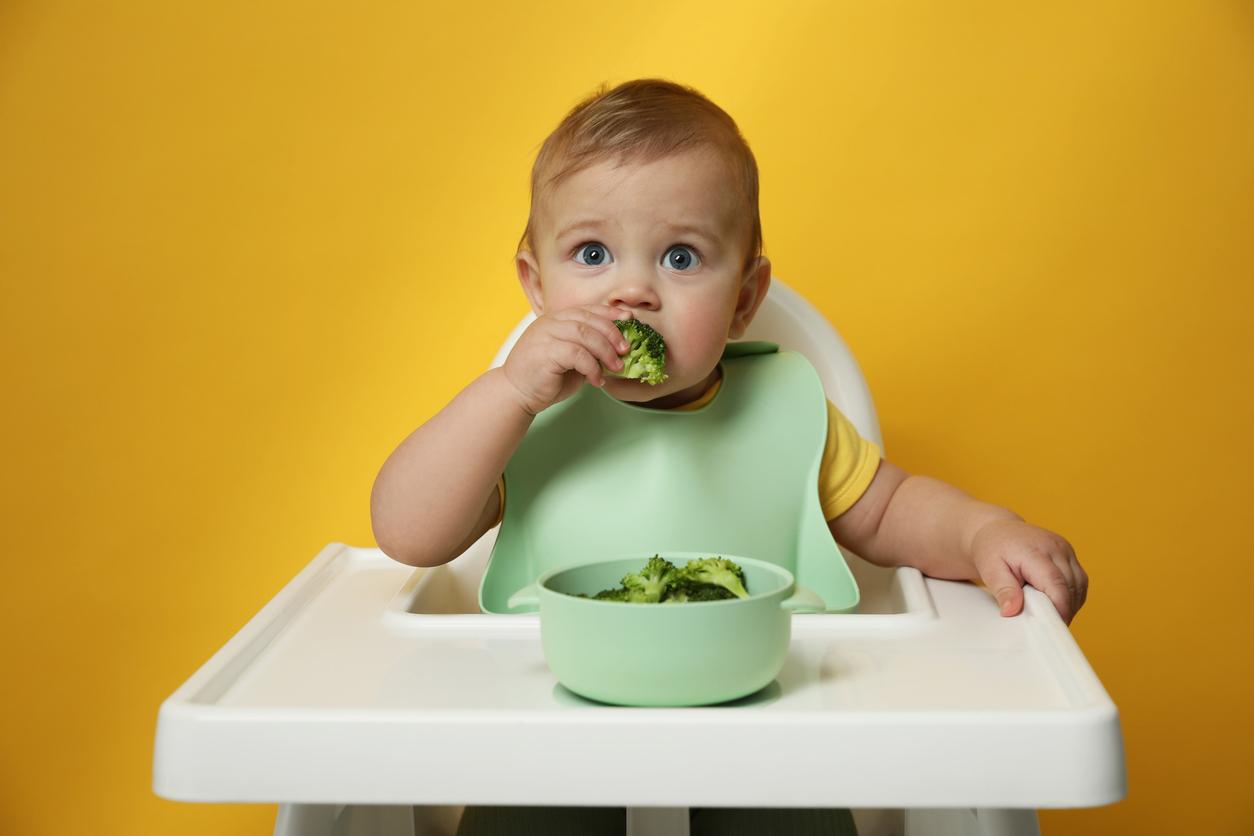In infants, a healthy diet may reduce the risk of later developing inflammatory bowel disease, according to a new study.

- A diet very rich in fish and vegetables, with a minimum of meat and sugars. This would be, for the stomachs of infants, the best diet to prevent the risk of chronic inflammatory bowel disease (IBD) in adulthood, according to a study.
- Moderate and high-quality diets at age 1 year are associated with a 25% lower overall risk of IBD compared to an unhealthy diet. Eating a lot of fish at the age of 3 would, for example, reduce the risk of ulcerative colitis by 54%.
- Conversely, the consumption of sugary drinks would increase the risk of IBD by 42%. However, researchers have not found such an obvious link between the appearance of IBD and meat, dairy products or even foods rich in sugar and fat, supposedly less good for health.
A diet very rich in fish and vegetables, with a minimum of meat and sugars: according to a large study published in the journal Gutthis would be, for the stomachs of infants, the best diet to prevent the risk of chronic inflammatory bowel disease (IBD) in adulthood, which would affect more than 200,000 people in France.
The role of diet quality in infants
To reach this conclusion, researchers from the University of Gothenburg, Sweden, examined data from two studies called All Babies in Southeast Sweden (ABIS) and Norwegian Mother, Father and Child Cohort Study (MoBa). The first involved 21,700 children born in Sweden between 1997 and 1999, the second included 114,500 children, 95,200 mothers and 75,200 fathers recruited throughout Norway between 1999 and 2008.
Parents were asked about their children’s diet when they were 12 to 18 months and 30 to 36 months: how much meat, fish, fruit, vegetables, dairy products, sweets, snacks and sugary drinks? Diet quality was then assessed according to the Healthy Eating Index (HEI) scale, an index of healthy and varied diet. Not surprisingly, higher intake of vegetables, fruits and fish, and lower intake of meats, sweets, snacks and drinks translated into a higher HEI score. The child’s age at weaning from breastfeeding, antibiotic use and infant formula consumption were also taken into account.
Children’s health was monitored for an average of 15 (MoBa) and 21 (ABIS) years from age 1 until December 31, 2020-21. During this period, 307 children were diagnosed with IBD, including 131 with Crohn’s disease, 97 with ulcerative colitis, and 79 with unlisted IBD. They were on average aged 12 years (MoBa) and 17 years (ABIS) at the time of diagnosis.

Fish and vegetables associated with less inflammatory bowel disease
After adjustment with other potential factors (parental history, education, etc.), it appeared that diets “medium and high quality at 1 year of age, particularly rich in fish and vegetables, were associated with a 25% lower overall risk of IBD” compared to an unhealthy diet, we can read in a communicated. Eating a lot of fish at the age of 3 would, for example, reduce the risk of ulcerative colitis by 54%.
Conversely, the consumption of sugary drinks would increase the risk of IBD by 42%. However, researchers have not found such an obvious link between the appearance of IBD and meat, dairy products or even foods rich in sugar and fat, supposedly less good for health.
“This study supports the hypothesis that early-life diet, arguably influenced by changes in the gut microbiome, may affect the risk of developing IBD,” conclude the authors, according to which it is time to recommend a “preventive diet” to infants.















